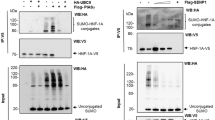Abstract
Mutations in the HNF4α gene have been correlated with maturity-onset diabetes of the young, which is characterized mainly by pancreatic β-cell dysfunction and is also associated with mild liver abnormalities. HNF4α D126Y and D126H mutations were found in a patient with early-onset type 2 diabetes, and the R324H mutation was found in a common type 2 diabetic nephropathic patient. We investigated whether these mutations, which have not yet been functionally characterized, impair HNF4α function in three cell models: HEK 293 embryonal kidney cells, HepG2 hepatoma cells, and βTC3 pancreatic β-cells. The R324H mutation had no effect on HNF4α function with either the HNF1α and L-type pyruvate kinase (LPK) promoters, but the D126Y and D126H mutations impaired HNF4α transcriptional activities in all tested cell lines. These impairments by D126Y and D126H mutations, which are located in the T box, are not due to a loss of dimerization but to a loss of DNA binding. Interestingly, the strongest functional consequences of these mutations were observed on the HNF1α promoter in βTC3 cells. Given the key role of the transcription factor HNF1α in pancreatic β-cell function, it can be inferred that impairment of HNF4α function by these mutations affects metabolic pathways in pancreatic β-cells and contributes to development of diabetes. Moreover, the HNF4α-mediated activation of the apolipoprotein CIII promoter in HepG2 cells was significantly impaired by D126Y and D126H mutations. These results support clinical findings that liver function can also be impaired in diabetic patients having HNF4α mutations.
Similar content being viewed by others
Author information
Authors and Affiliations
Additional information
Electronic Publication
Rights and permissions
About this article
Cite this article
Oxombre, B., Moerman, E., Eeckhoute, J. et al. Mutations in hepatocyte nuclear factor 4α (HNF4α) gene associated with diabetes result in greater loss of HNF4α function in pancreatic β-cells than in nonpancreatic β-cells and in reduced activation of the apolipoprotein CIII promoter in hepatic cells. J Mol Med 80, 423–430 (2002). https://doi.org/10.1007/s00109-002-0340-8
Received:
Accepted:
Published:
Issue Date:
DOI: https://doi.org/10.1007/s00109-002-0340-8




